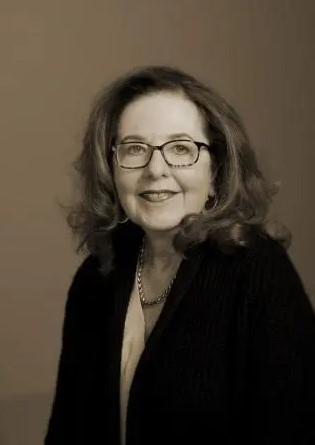Mentorship is Always on the Menu at Ruth Enid Zambrana’s Kitchen Table
Medical sociologist has mentored many Terps from her Chevy Chase, Md. home—and doesn’t plan to stop anytime soon
As families around the world get ready to gather around their kitchen tables for holiday feasts, mentees of a University of Maryland medical sociologist are remembering the equally nostalgic time they spent seated at her kitchen table.
Ruth Enid Zambrana has hosted between 20-30 UMD students and faculty members in the Florida room of her Chevy Chase, Md. home over the course of her nearly 25-year College Park career. She has cooked for them, provided them with a distraction-free space to work on their doctoral dissertations, offered thoughtful feedback and career advice, and so much more—all in the name of giving the next generation of scholars the kind of transformative mentorship she experienced.

“I would never be where I am if it wouldn't have been for mentors,” said Zambrana. In addition to serving as a Distinguished University Professor in the Harriet Tubman Department of Women, Gender and Sexuality Studies, Zambrana is an affiliate faculty member of the College of Behavioral and Social Sciences’ sociology and African American studies departments, and of the School of Public Health's Department of Community and Behavioral Health. “Mentoring is part of my spirit, part of my philosophy, and part of my sense of giving back for my own blessings because I have a big payback.”
Zambrana is a first-generation college student whose mother didn’t graduate high school, and whose father, who worked in a hotel, had only a third-grade education. Defying the odds, Zambrana graduated high school, then—while working in a supermarket full-time—graduated with a B.A. in Psychology from Queens College of the City University of New York.
Zambrana then went on to graduate with a Master’s in Social Work from the University of Pennsylvania, after which point she worked as a counselor for the City University of New York’s open admissions program, designed to shepherd driven, underrepresented, and low-income students from New York City high schools into college. Zambrana says that that was her “turning point,” the moment she decided she wanted to join “the other side” by becoming a professor because of many professors’ low expectations and mistreatment of the students she counseled—“in effect closing the doors of opportunity,” she said.
It was in the pursuit of her Boston University Ph.D. that Zambrana met one of her most impactful mentors: Donald E. Gelfand, her doctoral dissertation advisor.
“He took me under his wing, and when I was finished with my coursework, he invited me to give a presentation,” Zambrana recalled. “I remember I was terrified to be a public speaker. I was very shy. But, I recall his wife made us dinner, and I practiced and practiced and practiced that presentation until it was 2:00 or 3:00 in the morning. I would get paralyzed, but he did not give up on me. He said ‘No, you’re going to do this. You’re going to do this.’ And I did give the presentation, body shaking the entire time. He said I did great, but I observed no one asked me any questions!”

Unfortunately, Gelfand left Boston University before Zambrana could finish her dissertation. But before leaving, he made sure to connect her with “the most senior, eminent person in the department” who would go on to make sure that nothing stood in the way of Zambrana and her success: Dr. Irwin T. Sanders.
“A committee member decided at the final defense that they disagreed with one of the constructs of my dissertation, and I went to Dr. Sanders crying,” said Zambrana. “He said he would handle it, and the next thing I knew, my dissertation was signed. That’s the really important thing about mentoring: You make sure that that person is safe and is on the road to success, and you push out every obstacle for them that you can.”
Making the road to success less bumpy for the people who are driven to pursue it, and believing wholeheartedly in their ability to do so, is what Zambrana’s mentors did for her. And, while mothering two children and making advancements in her own career, that’s exactly what Zambrana has done for the many people she has mentored over the years—and is still willing to do for any who reach out.
“I have nurtured many really smart people, including ‘diamonds in the rough’ and a former gang member, because I knew they could and would shine. I think my life and my children are better people for knowing that it's important to respect people from all walks of life and colors, and to help others,” said Zambrana. “My message for faculty is this: Be more open to mentoring those individuals who have had less opportunity, and who sound like they have really struggled all along the way. We cannot continue to make life so easy for ourselves that we only want to mentor ‘the good ones’ who have already had opportunities. It’s good for you, and it makes the world a better place.”
Get a glimpse at just a few of the lives Zambrana has changed below:
Yamalis Diaz, PSYC Ph.D. ’09
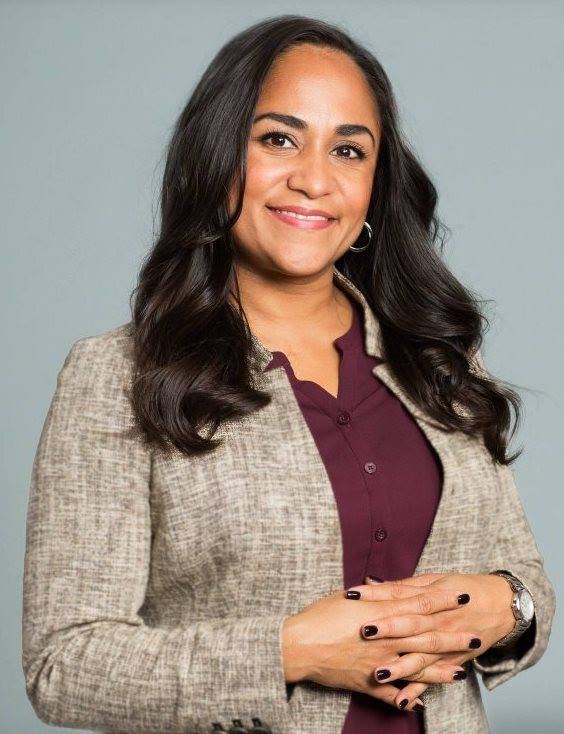
Yamalis Diaz, a clinical associate professor of child and adolescent psychiatry at the NYU School of Medicine, reached out to Ruth during the fifth year of her UMD doctoral program in clinical psychology. She had just had her dissertation proposal rejected, and she was unsure of her next steps.
“Given her expertise in cross-cultural research, a former mentor suggested I get in touch with her to see if she could help,” explained Diaz. “I scheduled a meeting with her and, much to my own surprise, I burst into tears almost immediately when I began to share the struggles I was having. Our first meeting, I was in tears!”
After some consoling, Zambrana agreed to help Diaz design her project, and she also signed up to serve as co-chair of Diaz’s dissertation committee.
Diaz worked on her dissertation throughout her clinical internship year in Philadelphia, but by the time she started what was technically her post-doctoral fellowship, Diaz still wasn’t done with her dissertation.
“Enter the kitchen table,” said Diaz. “Ruth insisted that I take a few days off and come and stay at her home in order to work on it uninterrupted. I stayed a few nights in her daughter's room and worked all day at that kitchen table as Ruth occasionally checked in, reviewed drafts, and served snacks.”
It worked; Diaz finished her dissertation at Zambrana’s kitchen table—likely while snacking on dates and walnuts.
“I had initially believed that Ruth did this for me because I was failing in some way and clearly needed extra support. When I learned there were others, many others, I realized this was Ruth's way of going far above and beyond to mentor each student in any way she could, including mentoring us at her own kitchen table,” said Diaz.
Today, Diaz serves as a member of the BSOS Board of Visitors.
Laura A. Logie, Women’s Studies M.A. ’03, Women’s Studies and Public Health Ph.D. ’08
Laura A. Logie met Zambrana at George Mason University, where Logie was an undergraduate interested in learning about women’s health and Zambrana was heading the Center for Child Welfare.
When Zambrana joined UMD faculty in 1999, Logie followed as her project coordinator—and a UMD graduate student.
“I was told directly from Ruth, ‘now you are going to get your Ph.D.!’ And so, I did,” recalled Logie. “The next nine years were spent around her kitchen table where not only was I mentored, but always fed! If we weren’t at her kitchen table, then we would be in her car, or we would walk around her neighborhood to help clear my head so I could focus on my dissertation. Lessons never stopped no matter what we might be doing.”
Zambrana said lessons didn’t stop for household tasks either, recalling trips to the grocery store with her kids and mentees in tow.
“She never gave up on me, even though I wanted to give up on myself many times,” said Logie, adding that she will “never forget” Zambrana’s Arroz Con Gandules, a dish of rice, peas and pork.
Logie persisted, eventually graduating in 2008 with her Ph.D. in women’s studies and public health, and going on to work as the assistant director of the Consortium on Race, Gender, and Ethnicity, which Zambrana co-founded and directed.
After nine years of working beside Zambrana, Logie told Zambrana she found a position she felt compelled to take.
“So, with the broken heart, I had to give her a high level recommendation because that's what she wanted more than anything; she wanted to work in the Latino community, and she was so well-trained in Latino issues,” said Zambrana. “And I thought, what a gift to my community to give them this beautiful woman who is so smart, so dedicated, and so committed.”
Logie has been the Director of Research at Nueva Vida, a community-based organization founded in 1999 to fulfill the growing needs of the underserved Latinx community affected by cancer in the Washington, D.C. metropolitan area, for nearly eight years now.
“I strongly believe I would never have advanced as far as I have in my career and professional development without the strong, passionate, encouraging mentorship of Dr. Ruth E. Zambrana,” she said. “I am extremely proud to call her my mentor and to have had the opportunity to foster this friendship over the last 30 years.”
Linda Aldoory, former associate dean in the UMD College of Arts and Humanities
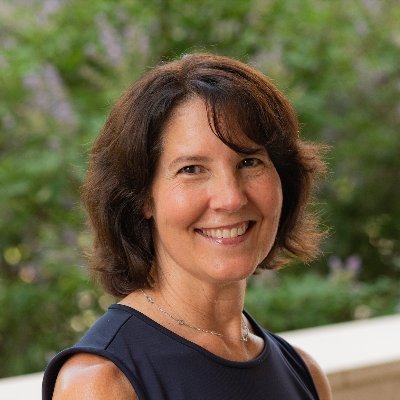
Linda Aldoory met Zambrana post-Ph.D., when she was already working at UMD as a tenure-track assistant professor in the Department of Communication researching the role of gender and race in public relations and health communications.
Upon being told that there were no mentoring programs for tenure-track professors during a workshop hosted by the provost at that time, Zambrana waited until the meeting was over, and stepped in.
“A woman I had never met walked up to me and said, ‘Hi, I'm Ruth Zambrana, a professor in women's studies, and I will be your mentor.’ And that was that!” said Aldoory.
Aldoory said that Zambrana wasted no time inviting her to her home, telling her when to come by and what to bring.
“Sometimes there were other folks at her house—young female researchers working on a project, or experienced researchers drafting a grant application together—and sometimes she invited me to a party or a women's studies department gathering. I met many people at UMD through Ruth's generosity, and at her kitchen table,” said Aldoory.
In addition to connecting Aldoory with key people on campus, Zambrana also walked her through how to improve her CV, and advised her on what research projects she should highlight.
“I have told Ruth this before, but I believe she is the reason I was successful at getting tenure and promotion to associate professor at UMD,” said Aldoory.
Aldoory also said Zambrana is responsible for helping her earn her current position as Dean of the College of Arts and Sciences at American University.
“Ruth continued to be a mentor and an important referral for when I left UMD. And, she continues to be willing to meet,” she said. “She has never given up on me, and for that I will be forever grateful.”
Britt Rios-Ellis, former lecturer in the UMD Department of Health Education
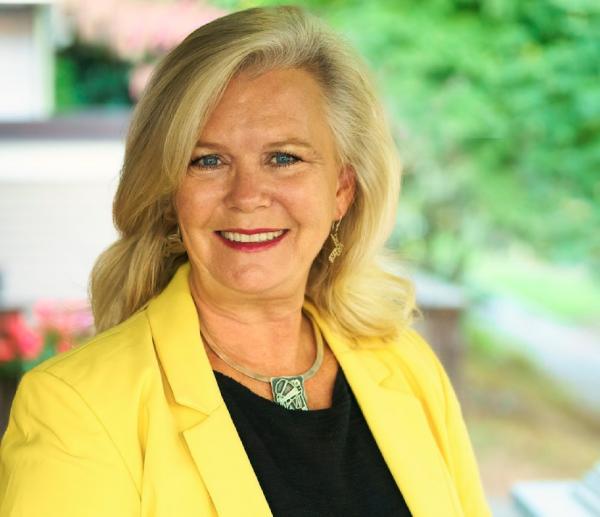 Britt Rios-Ellis, executive vice president of academic affairs and provost at Oakland University, met Zambrana in Washington, D.C. in the early 1990s via the former National Coalition of Hispanic Health and Human Services Organizations (COSSMHO) (Now the National Alliance for Hispanic Health). Rios-Ellis was participating in a post-doctoral research fellowship with COSSMHO at the time, and working as a lecturer in UMD’s Department of Health Education.
Britt Rios-Ellis, executive vice president of academic affairs and provost at Oakland University, met Zambrana in Washington, D.C. in the early 1990s via the former National Coalition of Hispanic Health and Human Services Organizations (COSSMHO) (Now the National Alliance for Hispanic Health). Rios-Ellis was participating in a post-doctoral research fellowship with COSSMHO at the time, and working as a lecturer in UMD’s Department of Health Education.
The two connected through mutual colleagues, and after that initial meeting, Rios-Ellis reached out to Zambrana to talk about Latino/a health.
“Latino health, which was my research area, created a natural connection and interaction,” said Zambrana. “I remember thinking she was so smart and committed to Latina/os.”
That strong first impression paid off for Rios-Ellis, because roughly one year after their meeting, Zambrana asked Rios-Ellis to help her with an article she was writing, to help Rios-Ellis advance her academic career.
Of course, that brainstorming, writing and mentoring happened at Zambrana’s Chevy Chase, Md. kitchen table.
“Ruth's kitchen table has been a space of centering, it has been a space of grounding, it has been a place where I know I'm going to receive sage advice—some of which is pleasant to hear, and some of which is very needed—and I always think about that space as being something that is very, very safe, sage, and caring,” said Rios-Ellis. “When I think about Ruth, I reflect on the fact that she is the one person who has been with me for decades who has always been extremely and selflessly invested in my career trajectory as an academic leader.”
Rios-Ellis left UMD in 1994 to launch an academic career on the West Coast, where she spent 20 years as a professor, mentor and researcher at CSU Long Beach. There she founded the Center for Latino Community Health, Evaluation and Leadership Training at California State University in collaboration with the National Council of La Raza (now UnidosUS) and raising over $50 million in Latino URM health and educational research and programming. She then transitioned to CSU Monterey Bay as the Founding Dean of the College of Health Sciences and Human Services for six-and-a-half years before taking her current position at Oakland University in Rochester, Michigan.
“Ruth has invested her time, her love, and her wisdom in me, and I feel blessed and insurmountably grateful,” said Rios-Ellis. “There is no way I would be where I am without her support and sage guidance. ¡Mil gracias, Ruth! ¡Eres la mejor mentora del mundo¡”
Joseph Richardson, Jr., MPower Professor of African American studies, medical anthropology and epidemiology
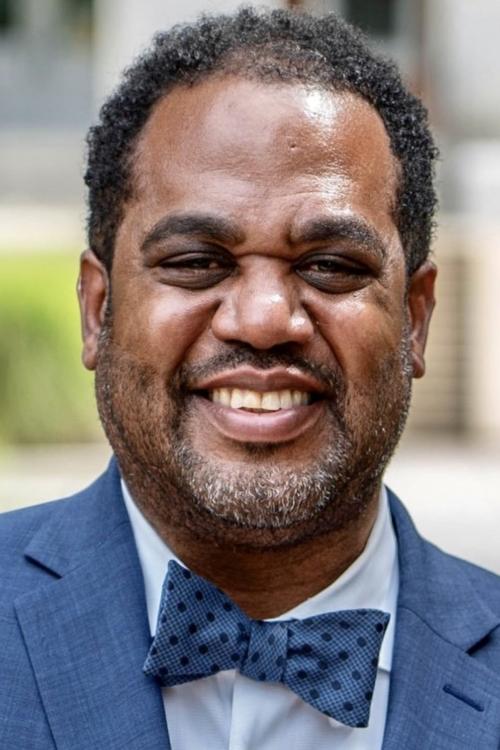
Joseph Richardson, co-director of the University of Maryland’s new Prevent Gun Violence: Research, Empowerment, Strategies and Solutions (PROGRESS) Initiative, was introduced to Zambrana by a mutual friend right before he decided to apply to join the University of Maryland in 2006. He says Zambrana served as his “academic mother” from that point forward, helping him with publications, presentations, navigate the academy, and, of course, enjoy a meal or two over her kitchen table.
But, Zambrana’s kitchen table isn’t where he remembers experiencing her most impactful mentorship. Zambrana was the chair of Richardson’s Appointment, Promotion and Tenure (APT) committee many years after their initial meeting, and in preparation for that, Richardson had been working on writing his personal statement.
“I had written this statement over and over and over and over again—I must've done at least 30 iterations just to get it down to five pages,” Richardson recalls. “I was still working on it when the Robert Wood Johnson Foundation, which had a program called New Connections for early career scholars of color, invited me and Ruth and other scholars to their headquarters in the New Jersey Metropolitan area. So we’re there with all of my colleagues from universities all across the country, we just completed a whole day of workshops, and I’m ready to relax and have a drink with my friends.”
Well, Zambrana thought that that drink was going to have to wait. And she wasn’t afraid to let Richardson know that, either.
“She interrupted the conversation and said to me, ‘Jo, you’re not done with your statement yet. You need to meet me back upstairs in my hotel room so you can finish working on this statement.’ And at first, I thought it was a joke, but she was dead serious,” he said. “I told my friends I’d be right back, thinking we were just going to talk about the statement and I could come back downstairs, but when I went to the room she had a desk inside the hotel room set up for me to do my work. She had the statement on the desk all marked up, sitting on the desk like I was in school.”
Though Richardson said he was mad in the moment, he has nothing but great things to say about Zambrana, whom he also credits for his recent election to the National Academy of Medicine.
“Ruth was just adamant about getting my CV and all of my materials so that she could make this nomination—which, I have to be quite honest with you, I really never thought much about—and then, lo and behold, I get nominated and elected, and it was all attributable to her nomination and her belief in me,” said Richardson. “It's just incredible the way that she has supported me throughout my career. I owe her everything for all the things that she's done. Thank you, Ruth.”
Published on Thu, Dec 14, 2023 - 1:00PM




